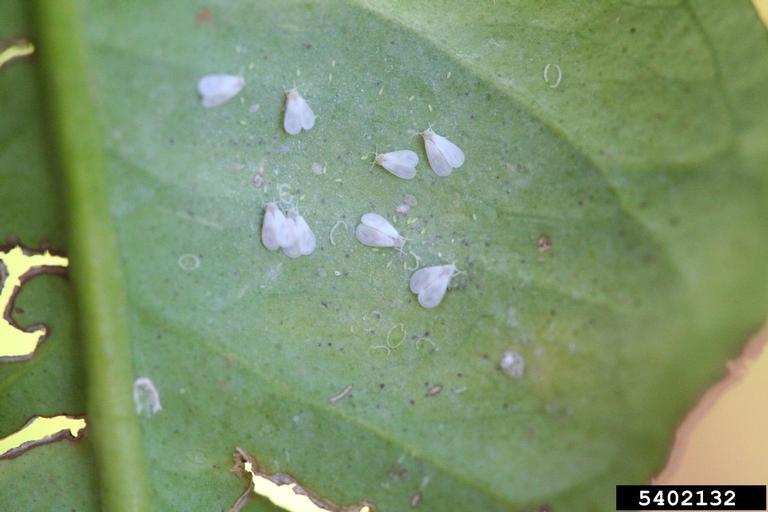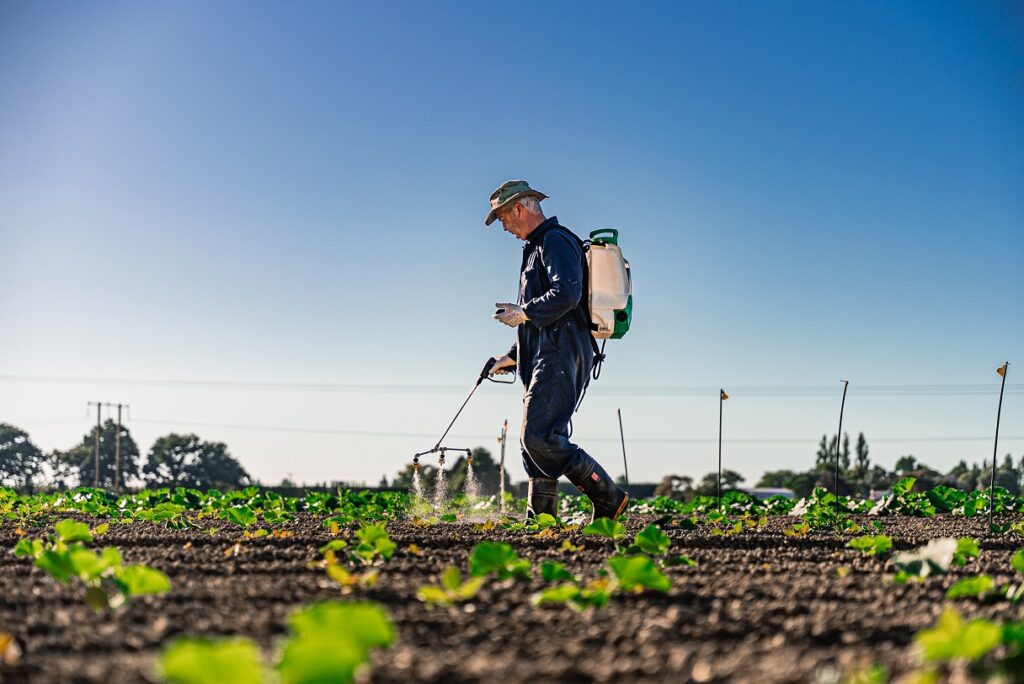As any grower will tell you, there’s a lot about producing food that you can’t control – the weather and pest pressure being two of the big ones.
Similarly, when you’re running trials to find crop protection solutions to add to the grower’s toolbox, you’re operating in the same environment as the grower, and weather and pest pressure can have a major influence on whether you get results.
A Lighter Touch in conjunction with its product group partners is conducting trials on orchards and farms across the country, and the past year has been a lesson in patience in terms of getting a result – either positive or negative.
Gisborne trials evaluating a range of insecticides and biopesticides for control of Australian citrus whitefly in mandarins and Kelly’s citrus thrips in lemons have proved inconclusive this season due to low pest pressure, and in the case of whitefly, the pest development not occurring in its usual cycle.

Australian citrus whitefly. Lesley Ingram, Bugwood.org
Both trials were affected the previous season by Cyclone Gabrielle, but the trials will be repeated this coming season.
Trials in buttercup squash crops in Gisborne and Hawkes Bay have experienced similarly inconclusive results. A number of biological products were being evaluated to assess their efficacy against soilborne diseases, which cost growers an average of $20 million a year in lost revenue. However, for trials held over the past two seasons, the industry has not seen the major canopy collapse and fruit losses that signify high levels of disease in the soil.
This work is part of a wider project looking to develop an agroecological “whole of farm” approach to manage soilborne diseases in buttercup squash, and trials will continue in the coming season.

Trials of biological products being evaluated to assess their efficacy against soilborne diseases in buttercup squash have been hampered by lower levels of disease in the soil over the past two seasons.
For boysenberry crops in the Nelson region, a lack of botrytis disease pressure meant efficacy evaluations for new biological products were again inconclusive. The previous year’s trials were also impacted by a lack of disease pressure, but more trials are planned for the coming season.
However, there was good news for tomato and persimmon growers with residue trials undertaken in those crops. A number of insecticide products were residue tested to provide those growers with some options that will be compliant with maximum residue levels.
The past season’s trial results really demonstrate that finding new crop protection tools for growers is a long game, with no quick results. Even for trials where products have shown a very positive result, it is necessary to repeat those trials to validate that initial result, and sometimes the same result is not seen from season to season.
While a positive result is the desired outcome from trials, even a negative result is useful, as it enables a product to be ruled out.
Inconclusive results are the most unhelpful outcome, but are an unfortunate reality of conducting crop protection trials. Just like for growers, there’s good seasons and there’s bad seasons – ironically if it’s an absence of pest pressure causing a headaches for those running trials, it’s good news for the grower!